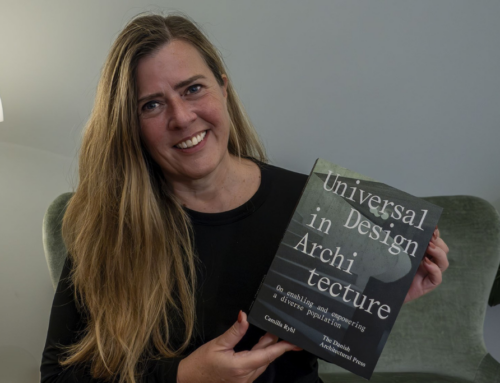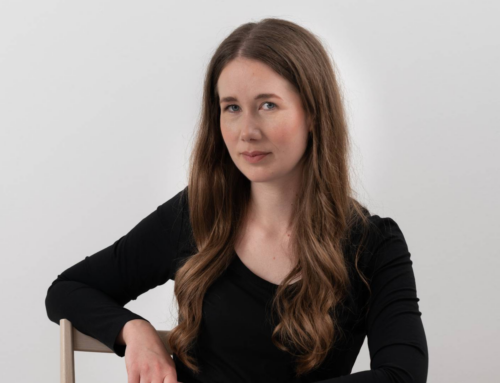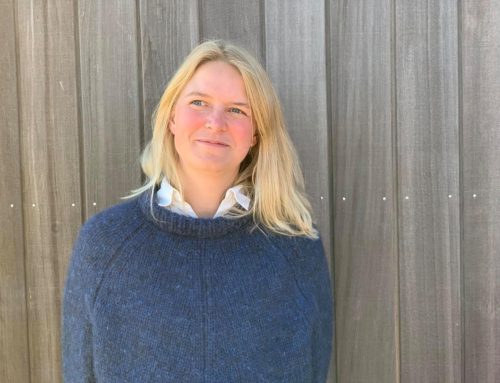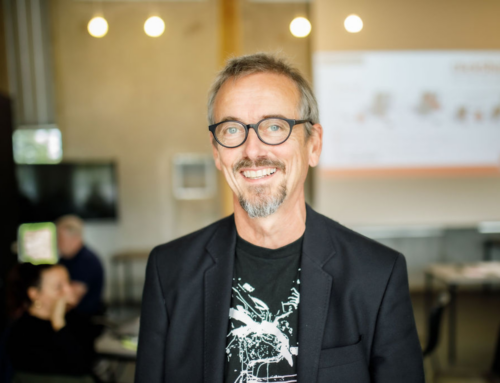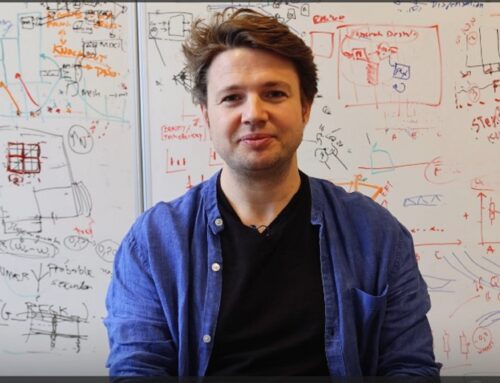
Landscape architect wants to help people with mental illness
Mikkel Hjort is a landscape architect and his postdoc examines how the design of the outdoor environment can help people with mental illnesses.
by Nanna Stærmose. The article is published on 14/03/2023.
All humans are affected by their physical surroundings. However, some people are affected so intensely that those surroundings become almost painful and unbearable.
“During my interviews with people suffering from schizophrenia, I’ve learned that some of them have sensory perceptions far and beyond what you and I experience,” says Mikkel Hjort, a landscape architect and postdoc at the Department of Psychology at the University of Southern Denmark.
Mikkel brings up the example himself because he was surprised by this new information, and because it was was very valuable to the postdoc project he is working on. Based on two patient groups at Psykiatrisk Center Ballerup, the project studies how the outdoor environment can help patients with their recovery. The term ‘recovery’ arose in the 1990s and covers the process a person with a mental illness goes through in order to learn to live with their condition and thereby find a new meaning in their life.
A person’s physical environment is part of this process, as humans are affected by their surroundings. The project hopes to provide more knowledge about the relationship between the physical environment and people with mental illnesses.
“The physical environment cannot cure people with a mental illness, but it can help the process of learning to live with an illness,” says Mikkel Hjort.
Room for contemplation and something to do
Mikkel Hjort has interviewed two patient groups. One group where most of the patients have schizophrenia and another group from an old-age psychiatry department. He is currently reviewing literature within the area to see what has already been written on the subject and what previous studies have learned.
“The field of landscape architecture and mental illness is not a field that has been heavily cultivated, so my hope is that I’ll be able to provide new knowledge to ensure that creating good outdoor areas for this group has an evidence-based foundation,” he says.
It is too early to present any specific conclusions. Mikkel Hjort still needs to conduct interviews with the staff at the psychiatric center and he also has several workshops planned at which he will work with staff and patients to learn more about what could help and what won’t work. However, his interviews have already given him an idea about what some individuals want.
“Many mention space for immersion, a place where they can be alone or together with others, but which is designed to create a sense of harmony and serenity. Some from this group have trouble with mess and disorder. So, although we can work with wild nature and different plants, we still need to maintain a sense of order,” says Mikkel Hjort.
Other patients mentioned that they would like to get their hands dirty, either by gardening or by fixing things in a workshop.
“Perhaps some safe outdoor activities and doing things with other people might boost a person’s self-confidence and help them find meaning,” says Mikkel Hjort.
User participation
An important part of the project is involving users in the design process. This means Mikkel Hjort’s project aligns well with the concept of universal design, and he himself notes that, as an architect, he is aware that things can quickly become about what he thinks is a good solution, but this means losing valuable knowledge. Some members of the group with schizophrenia mentioned traffic noise as a problem:
“But just because traffic noise has an adverse effect doesn’t mean that we shouldn’t include sound in our work. Perhaps we just need to find good sounds, maybe the sound of walking through pebbles or the sound of trickling water,” says Mikkel Hjort.
The construction of two outdoor courtyards will take place in the spring of 2023, so they should be ready to use in the middle of April 2023. Mikkel Hjort hopes that he will be able to complete the evaluation interviews the following autumn.
“We can’t really draw any conclusions until then, but hopefully what we learn will help develop an evidence-based design for any future work on outdoor areas at psychiatric centres,” says Mikkel Hjort.
Mikkel Hjort
Landscape architect and a postdoc at the Department of Psychology, University of Southern Denmark
Owns the company Transparet Design.
His postdoc project aims to assist the recovery of psychiatric patients by improving outdoor spaces at psychiatric treatment facilities
The project is expected to be completed by the end of 2023, and is being funded by Østifternes Fond, 15. Juni Fonden, The A.P. Møller Foundation and Realdania.
Member of the Bevica Foundation’s research network
Read more research profiles
